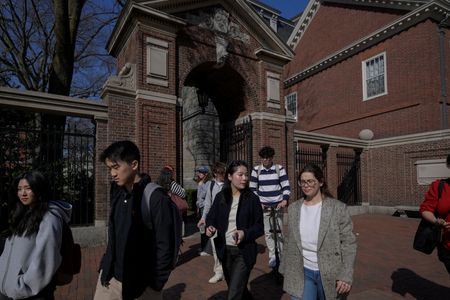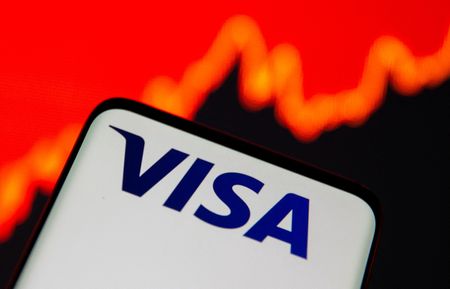By Marie Mannes and Nora Eckert
STOCKHOLM/DETROIT (Reuters) -Volvo Cars CEO Hakan Samuelsson said on Friday that its customers would have to pay a large part of tariff-related cost increases, and that it could become impossible to import one of its most affordable cars to the United States if levies increase.
U.S. President Donald Trump on Friday said he was recommending a straight 50% tariff on goods from the European Union starting from June 1, saying that the EU has been hard to deal with on trade.
Samuelsson told Reuters that a 50% tariff would limit the ability of Volvo Cars to sell its Belgium-made EX30 electric vehicle in the United States.
“That would of course be almost impossible,” he said, adding that given the fluid nature of the tariff threat he would not speculate further.
Trump’s tariffs on automotive imports and car components have caused turmoil in the global auto industry, with some companies altering production plans to ease costs related to the duties, while others wait to see if the policies change.
The EX30, which Samuelsson said was “very severely hit,” by tariffs because it was initially produced in China, has been Volvo’s attempt at providing its customers with an affordable electric car.
With a planned starting price of $35,000, hefty tariffs imposed on cars made in China led Volvo to delay selling the car in the U.S. market until production started in Ghent, Belgium, which happened in April of this year. The car’s starting price is now at $46,195.
Vehicles from other carmakers with lower price tags, including Ford Motor General Motors and Toyota Motor, are imported to the U.S. from Mexico, South Korea or Japan, putting their price points at risk in the face of tariff uncertainty.
Samuelsson said he was hopeful that Europe and the United States will soon come to an agreement despite the threat of rising tariffs.
“I believe there will be a deal soon. It could not be in the interest of Europe or the U.S. to shut down trade between them.”
Most of Volvo Cars’ vehicles for the U.S. market, which last year accounted for 16% of group sales, are imported from Europe. The company aims to increase production at its Charleston, South Carolina factory in the near term by adding a new model, which Samuelsson has previously said could be a mid-sized plug-in hybrid.
Volvo’s shares were down 5.0% at 1337 GMT.
(Reporting by Marie Mannes in Stockholm and Nora Eckert in Detroit; Writing by Louise Breusch Rasmussen; Editing by Terje Solsvik and Jane Merriman)








